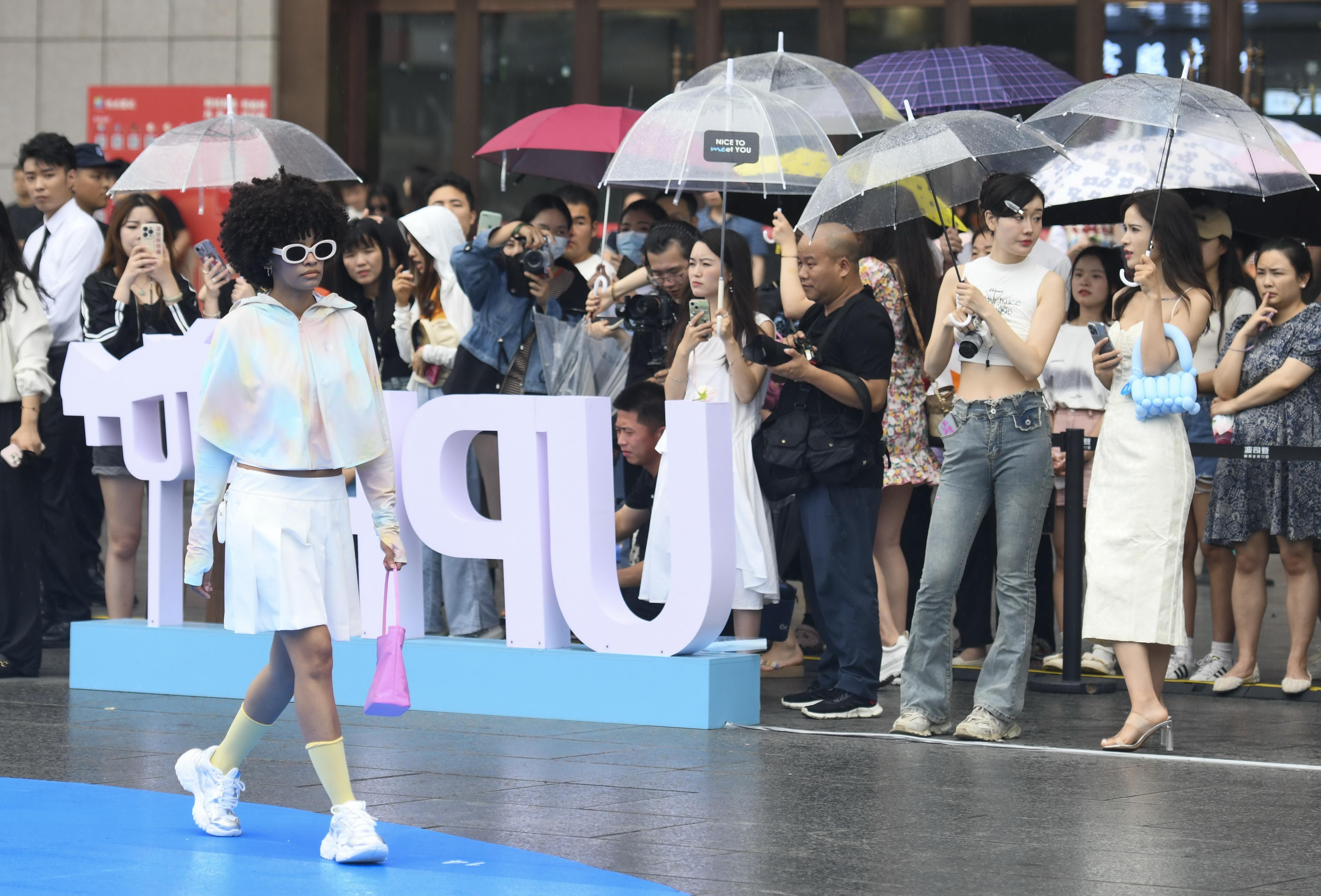Qingdao-based outdoor equipment brand shows diverse portfolio to fit camping needs
 Visitors watch and take photos of a model showcasing a sun protection outfit in a street in Changsha, Hunan province, on May 21. (PHOTO / CHINA NEWS SERVICE)
Visitors watch and take photos of a model showcasing a sun protection outfit in a street in Changsha, Hunan province, on May 21. (PHOTO / CHINA NEWS SERVICE)
During the past three years, as the fashion of going on a camping adventure has developed into a big trend, one domestic tent producer has found its products in high demand, with requests from domestic and other Asian markets.
The Free Spirits Tents, or TFS Tents, an outdoor equipment brand focusing on camping tents based in Qingdao, Shandong province, said lightweight tents for hiking and mountain climbing or designs with individuality have proven even more popular this year.
"Family tent users are more fragmented this year when more people can travel overseas or on long-distance trips," said Wang Jigang, founder of TFS Tents.
Large and heavy tents that can house an entire family and their equipment are no longer the most sold, he added.
Founded in 2011 by Wang, a tent designer, TFS Tents has become popular among outdoor fans and its product was featured in the popular movie The Wandering Earth in 2019.
TFS Tents — ranging from leisure camping, backpacking and mountaineering — has four lines of products — the classic series Black Label, the lightweight Blue Label, the Red Label for adventure and the base camp series White Label.
Their Black Label series, designed for mountain climbing and hiking, has grown two to three times in terms of sales volume.
"Nowadays, young travelers have planned trips to renowned mountain climbing or hiking sites and require better quality and designs in outdoor equipment," Wang said.
Individuality and personality are reflected in their demands, he said. For example, many female travelers have asked for pink tents.
The company has a factory of about 70 sewing professionals making handcrafted tents. Having worked for a South Korean tent original design manufacturing factory in Qingdao since 1993, Wang learned many skills. Seven years later, Wang was promoted to learning how to design the tents under a top South Korean designer.
Wang decided on the two most important factors of his business — materials and production. He abandoned the traditional way of paying his workers by how many tents they assembled and adopted the salary method that measures work by the hour so as to improve the quality of each tent.
TFS Tents imports materials from South Korea and Japan, such as DAC tent poles, the highest-performance aluminum tubing from South Korea, which is widely used in extreme environments. Testing and production usually take two years to make one product, he said.
Last year, the company invested more than 1 million yuan ($141,661) in research and development.
In January last year, the company developed a product called the "Cave", in collaboration with Neru Design Works in Japan. The dome-shaped tent is suitable for use in cold environments and has some new design breakthroughs, such as being one of the few TC cotton (polyester cotton blend) spherical tents, and is priced at 14,980 yuan.
Wang attributed the company's success in the outdoor equipment industry to his own passion for camping and outdoor lifestyles, as well as his persistence in aesthetics.
In the era of "glamping" — a word coined from combining glamor and camping — "younger consumers in China have higher demands for designs, which match our strengths", he said. "However, to stand out from the competition requires spending more time on research, testing and communications with users and partners overseas for constant user feedback."
Half of the company's sales are from overseas markets, predominantly from Japan, South Korea and Thailand, said the founder.
Their products adapt to the needs of colors varied by the markets. For example, Japanese consumers are quite fond of earthy tones, whereas the South Korean market tends to prefer stronger colors such as yellow or purple, Wang said.
"A good product is not a product that is good in one or two parts. It is an integrated process. There is no shortcut to being great," said Wang.


